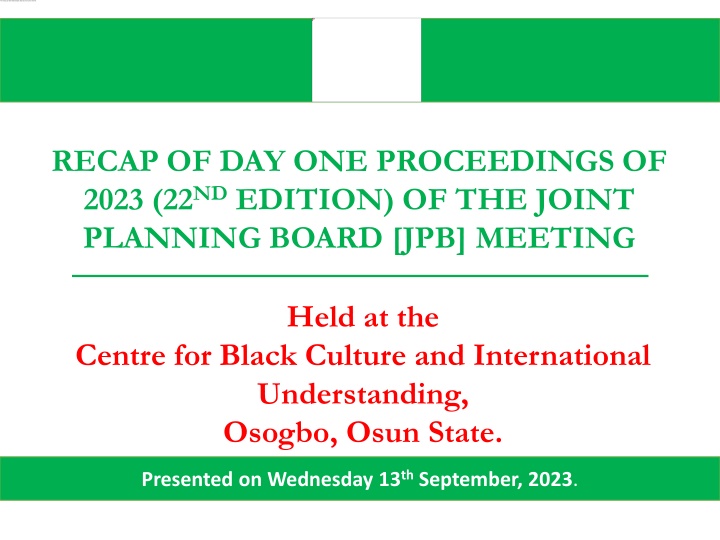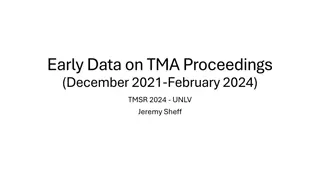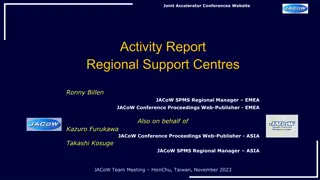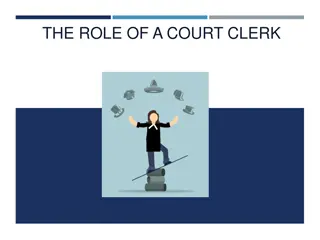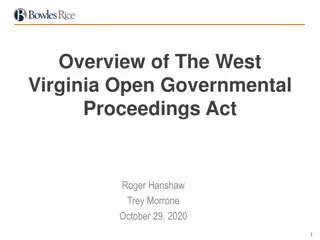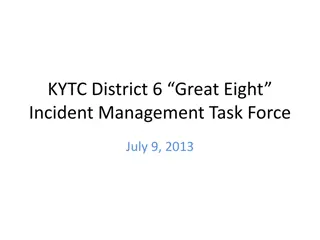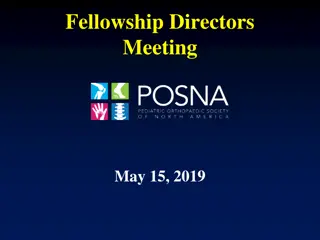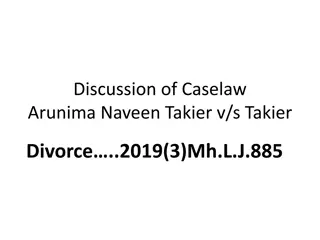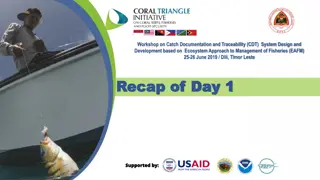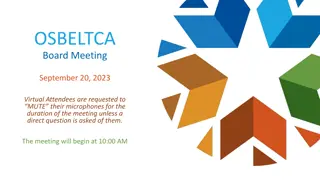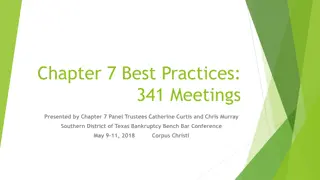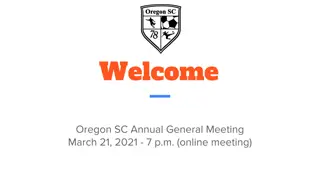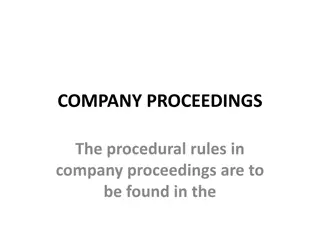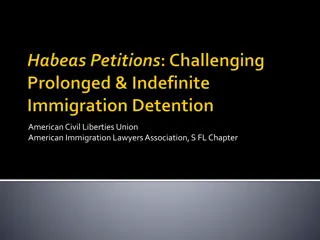Recap of Day One Proceedings of 2023 JPB Meeting in Osogbo, Osun State
The 22nd Edition of the Joint Planning Board Meeting was held in Osogbo, Osun State, focusing on restoring Nigeria's economic growth. The meeting started with key addresses and presentations on energy sufficiency and sustainable development. Delegates from various sectors participated in this hybrid event, setting the agenda for discussions ahead.
Download Presentation

Please find below an Image/Link to download the presentation.
The content on the website is provided AS IS for your information and personal use only. It may not be sold, licensed, or shared on other websites without obtaining consent from the author.If you encounter any issues during the download, it is possible that the publisher has removed the file from their server.
You are allowed to download the files provided on this website for personal or commercial use, subject to the condition that they are used lawfully. All files are the property of their respective owners.
The content on the website is provided AS IS for your information and personal use only. It may not be sold, licensed, or shared on other websites without obtaining consent from the author.
E N D
Presentation Transcript
RECAP OF DAY ONE PROCEEDINGS OF 2023 (22NDEDITION) OF THE JOINT PLANNING BOARD [JPB] MEETING Held at the Centre for Black Culture and International Understanding, Osogbo, Osun State. Presented on Wednesday 13th September, 2023.
1.0 INTRODUCTION The 2023 (22nd Edition) of the JPB meeting organized by the Federal Ministry of Budget and Economic Planning (FMBEP) in collaboration with the Osun State Government. The meeting commenced on Tuesday, 12th September, 2023 at the Centre for Black Culture and International Understanding, Osogbo, Osun State. The meeting with the theme Imperatives for Restoring Nigeria on the path of Sustainable Economic Growth and Development was formally declared open by His Excellency, Prince Kola Adewusi; the Deputy Governor of Osun State. The meeting was convened as hybrid (physical and virtual). The participation was impressive with 530 delegates drawn from the Federal and State Ministries, Departments and Agencies (MDAs), Private Sector, Civil Societies, Development Partners, NGOs, Academia, and Media. 26 States and FCT namely Abia, Adamawa, Akwa-Ibom, Bauchi, Bayelsa, Benue, Borno, Edo, Ekiti, Gombe, Kano, Kebbi, Kogi, Kwara, Lagos, Niger, Ogun, Ondo, Osun, Oyo, Rivers, Sokoto, Taraba, Yobe and Zamfara were in attendance. 2
2.0 OPENING SESSION The JPB meeting commenced at 11:00am with the recitation of the 2nd Stanza of the National Anthem and the Osun State Anthem. Mrs. Yetunde Esan; the Permanent Secretary, Osun State Ministry of Economic Planning, Budget and Development gave the Welcome Address, while Mr. Nebeolisa Anako, the Permanent Secretary, Federal Ministry of Budget & Economic Planning (FMBEP) gave the Opening Remarks. Goodwill Messages were delivered by the Secretary to Osun State Government, Hon. Teslim Igbalaye, ably represented by the Permanent Secretary, Bureau of Cabinet, Osun State, Mr. Soji Wojuade; the Director-General, Nigerian Institute of Social and Economic Research (NISER), Prof. Antonia T. Simbine; and the Ondo State Commissioner for Budget and Economic Planning, Pastor Emmanuel Igbasun. Dr. (Mrs.) Gloria K. Ahmed, the Director, Special Duties, Federal Ministry of Budget and Economic Planning set the Context and Agenda for the meeting. Keynote Address was delivered by His Excellency, Deputy Governor of Osun State; Prince Kola Adewusi and declared the meeting opened. Mr. Adeola Olusola Ogungbile, the Hon. Commissioner for Finance, Osun State gave the Vote of Thanks and the session ended with the recitation of the Osun State Anthem, as well as, the first stanza of the National Anthem as the closing prayer. 3
3.0 TECHNICAL PLENARY SESSIONS The first day featured a lead paper on Imperatives for Restoring Nigeria on the Path of Sustainable Economic Growth and Development and one (1) Technical Plenary Session, with the sub-Theme; Energy Sufficiency and Sustainable Economic Development . A total of three (3) papers were presented by Resource Persons, namely: Status Report on the Implementation of Key Resolutions of the 21st Edition of the JPB/NCDP Meetings; Energy Sufficiency for Development: Options for Nigeria; and Alternative Energy Revolution for Industrialization and Economic Prosperity. Sustainable Economic 4
4.0 KEY COMMENTS AND OBSERVATIONS Imperatives for Restoring Nigeria on the Path of Sustainable Economic Growth and Development The challenges of underdevelopment in Nigeria could be attributed to the problem of leadership and governance. Good governance and effective leadership should be considered as critical factors for the achievement of inclusive economic growth and sustainable development; The urgent need for true federation to enable States and Local Governments contribute meaningfully to the economic growth and development through active participation in the management of their natural resources and endowments; The Current Administration should focus on the 8-points Agenda and ensure its effective implementation both at the National and Sub-National Levels; There is need to address the problems of the informal sector of the economy as a critical and larger part of the economy; The roles of reliable data in national development planning cannot be over-emphasized; The level of educational development and the character of our youths are fast developing. There is the need for Nigeria s educational reform, and this should have moral and cultural content; Status Report on the implementation of key Resolutions of the 21st Edition of the JPB/NCDP Meetings The need for inclusion of footnotes on the template sheet to States for better understanding of the nature of request on the status report as well as the implementation of key resolutions of the JPB/NCDP meetings. 5
4.0 KEY COMMENTS AND OBSERVATIONS [CONTD] Energy Sufficiency for Sustainable Economic Development: Options for Nigeria The current state of energy sufficiency in Nigeria shows that one in every five Nigerians still lack access to modern electricity; To ensure sustainable economic development, it is imperative for citizens to have access to clean, affordable, reliable, modern and renewable energy. The key challenges in the Energy Sector in Nigeria are Gas Flaring, High Volume Contracting & Leakages, Policy Duplication & Inefficiency, Slow Implementation of Planned Projects, limited finance, Low Interest in Technology Acquisition/Local Research and Development Prototype.; Development of small Hydro Power projects which are renewable, environmentally friendly, and less cumbersome to maintain than large ones, should be undertaken by States and the Federal Government as one pathway towards energy sufficiency using our available resources. This is in addition to solar energy. Alternative Energy Revolution for Industrialization and Economic Prosperity The major factor to determine the usage of renewable and non-renewable energy sources is in terms of environmental cleanliness and relative affordability The Federal and State Governments to encourage establishment of community development clusters, or Foundations to solve localized infrastructure problems of energy, transportation. These Community Foundations can provide innovative solutions. The new Electricity Act now empowers State Governments to fully undertake planning and developments in the Power Sector. The current role of the Federal Government s Rural Electrification Agency (REA) should be consequentially assessed. 6
5.0 KEY DECISIONS AND RECOMMENDATIONS Imperatives for Restoring Nigeria on the path of Sustainable Economic Growth and Development The 36 States and the FCT are encouraged to individually examine its own local peculiarities and fashion out its own sustainable development pathways through effective policies directed at the major drivers of economic development; Both National and Sub-National Governments must invest heavily in Human Capital Development to create highly skilled manpower needed for rapid economic growth and development; and Overreliance on Oil & Gas for major sources of revenue should be discontinued and attention focused on diversification of the economy. The Federal Government must begin to develop other sectors such as Agriculture, Solid Mineral, Physical Infrastructures, Manufacturing, Trade and Services among others in order to diversify the economy. Status Report on the Implementation of key Resolutions of the 21st Edition of the JPB/NCDP Meetings The FMBEP should collaborate with the States in the process of designing the template for harvesting the status of implementation of the JPB/NCDP factoring the peculiarities of each state. 7
5.0 KEY DECISIONS AND RECOMMENDATIONS [CONTD] Energy Sufficiency for Sustainable Economic Development: Options for Nigeria Government at all levels should promote the migration of Heavy-Duty Industries/Transport system from fossil fuel to Gas Infrastructure; Given the new Electricity Act that empowers States and individuals to participate in all components of the energy sector, States Governments should carry-out energy audit to determine Energy needs/demand and explore areas for collaboration with the private sector based on their comparative advantage; States should develop small hydro power plants (on or off-grid) and solar for communities and MSMEs The three tiers of Government should institute initiatives for promotion of attitudinal change regarding energy use, wast ages and theft. Government should promote Research & Development, Local Content, New Energy (Hydrogen, Biofuels) Prototype Investments for energy sufficiency, Alternative Energy Revolution for Industrialization and Economic Prosperity Government should promote the establishment of Community foundations as a vehicle for investment in micro power grid projects and other infrastructures; and Tertiary Institutions should pioneer micro renewable energy projects to cater for the institution and nearby communities. 8
